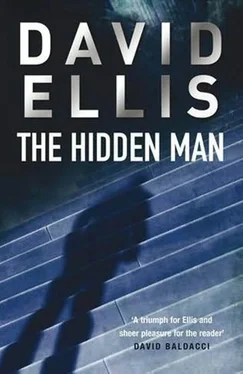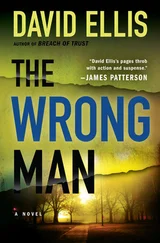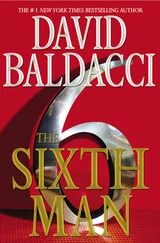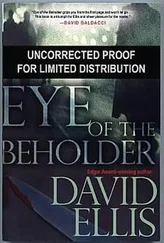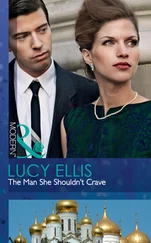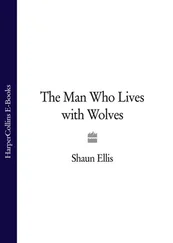“Judge Poker said Griffin Perlini’s priors for child molestation are irrelevant.”
I was afraid of that. As long as Sammy was claiming he didn’t kill Perlini, it made no difference whether Griffin Perlini was the pope, the CEO of General Motors, or a two-bit child predator. I would have made the same ruling if I were the judge. The murder victim’s history makes no difference if the defendant is merely claiming that he didn’t do it.
But Sammy wouldn’t plead diminished capacity. He wouldn’t claim he temporarily lost control. That left me with a case that looked pretty damn strong for the prosecution.
“There’s one guy.” Oleari was using a toothpick. “One guy who says he saw some black guy running from the apartment building at around that same time.”
A black guy fleeing the scene. As a defense attorney, I wasn’t above stereotypes, and white jurors might be willing to buy into the idea.
“Was he wearing a brown jacket and green stocking cap?”
Oleari smiled, then shrugged. The truth, I figured, was that he didn’t know the answer. The interview had probably been conducted by one of the PD’s investigators, and a trial that was four weeks away, in the chaotic life of a public defender, might as well be four years away. “So you got a nice elderly couple that ID’d Cutler, you got a neighbor that saw the same guy with the bomber jacket and ski cap just outside the vic’s apartment, plus the store vids, plus Cutler’s incriminating statements to the cops-”
“And on the other side, I have one guy who saw a black man running.”
“Right. So unless you got a jury from Simi Valley, you better talk Sammy into a temporary insanity defense.”
By the tone of his voice, it was clear that Oleari didn’t expect me to have any more success than he did in that area. But a lightbulb went on. I still had a couple of synapses firing in my brain. “You got Griffin Perlini’s criminal history in your file?”
“Sure. Yeah. We’ll get the whole thing over to you tomorrow, after the judge lets you in.”
Tomorrow, I would appear before Judge Kathleen Poker and formally substitute into the case for Patrick Oleari. I was looking forward to a closer inspection of the entire file.
“Hey, not for nothin’.” Oleari nodded at me. “This is a long way from defending politicians in federal court.”
Apparently, Oleari had followed the Almundo case, too. The federal government doesn’t lose too often, and a lot of people took note. He probably figured I was still at my former, blue-chip law firm. I didn’t have the stomach to correct him and explain myself. Oleari was wondering what in the name of Clarence Darrow I was doing representing Sammy Cutler.
“We have history, Sammy and me,” I explained. I thanked him and left.
I had an idea about how I would get Griffin Perlini’s sordid life before the jury. It was a long shot, and I only had four weeks to pull it off, but it was the only chance we had.
I would need help. I would need a private investigator. A prayer wouldn’t hurt, either, if I still believed in that crap.
I drove back to my office in silence. I thought about old times, back in the day, Leland Park. I don’t remember life before Sammy. He was my first friend and my best friend. Both of our mothers worked part-time and they switched off baby-sitting chores, so whether it was my house or his, we were together from the time we were infants with one of the moms watching us. I made little distinction between his house and mine. If we couldn’t find a toy or a sock or a pack of Crayolas, the first order of business was not a search of my bedroom but a trip next door. I ate half my meals next door. I shit in half my diapers next door.
Sammy and I against the world, it felt like, though it was unspoken. People put us together, Fric and Frac, whatever we did, as if we were twins. My first fight, in kindergarten no less, I didn’t even throw the first punch; Sammy did, coming out of nowhere and popping Joe Kinzley in the kisser after he’d pushed me.
We were never apart, and it felt like we’d never be apart.
No one would have mistaken Sammy Cutler and Jason Kolarich for Boy Scouts. We were poor, and we took some liberties with the law. Shop-lifting was our favored method, from candy bars and baseball cards to jewelry and clothes at department stores that we would boost with our friendly neighborhood fence, a drop-out named Ice who paid fifty cents on the dollar. We started smoking dope when we were thirteen and then started selling it, too, which supplemented our jobs at the grocery store. Man, were we punks. We had no respect for anything or anyone. We committed petty offenses just for the hell of it, tossing rocks through windows, spray-painting garage doors, keying nice cars that made the mistake of parking in our neighborhood. We were scraping for whatever we could, causing a little unnecessary ruckus for fun, and surviving life at home.
When I was a freshman at Bonaventure, I was on the road to nowhere. I was able to discern, by that stage of my life, that I had something going for me in the brains department, but I saw no reason to apply myself. College wasn’t a consideration. Maybe I had listened too closely to my father, who didn’t have a favorable opinion of my present or future. It was in gym class, of all places, that my life turned around, a wayward pass thrown in a flag football game that, for some reason, I felt the urge to chase down, ultimately grabbing the ball with one hand outstretched, catching not only the pigskin but the attention of the varsity football coach. It was like something out of a movie. What’s your name, kid? he asked me. I knew who he was. Everyone knew Coach Fox. If you were me, if you were one of the kids who didn’t fit in, who smoked weed off-campus and blew off homework and generally avoided any school-sponsored event, you thought Coach Emory Fox was the Antichrist.
Payton , I told him. Walter Payton .
Yeah, okay, Walter Payton. I want you right here, on the practice field, after school .
I don’t know why I complied. It would have been more in character for a smart guy like me to blow it off. But I showed up, and he put me through the paces. I stood there, with the varsity quarterback, Patrick Gillis, directing me to run patterns and hurling the ball at me while one of the defensive backs tried vainly to shadow me. It felt as natural as breathing, hunting that football through the air, feeling it into my hands, tucking it in and running away from everything.
Sammy laughed when I told him where I’d been. They want me to come out , I told him. He said he wants me to play on varsity. Sammy searched my face, seemingly waiting for the punch line. You’re gonna play on the fucking football team, Koke?
I read something in his eyes, disappointment, in some sense a feeling of betrayal, when I told him that yes, I was going out for the football team.
YOU OWE ME, Koke . Sammy’s words to me a couple of hours ago, words he’d never said back then.
I rubbed my eyes and sighed. I had four weeks to pay my debt. I had four weeks to prove that Griffin Perlini did, in fact, abduct and murder Sammy’s sister, Audrey.
This week, for the first time in twenty years, I would go home.
THE PROSECUTOR on the Cutler case was Lester Mapp. I didn’t know him, but I’d looked him up on the Internet last night. He’d been a federal prosecutor for six years and then went into private practice with Howser, Gregg, a predominantly African-American law firm that practiced criminal defense. Two years back, he’d been recruited by the newly elected county attorney, a black alderman named Damien Sands. Sands had elevated a number of African Americans to prominent positions in the office. I’d heard some old-timers around the office throw around words like affirmative action , but I didn’t buy it, personally. I had little doubt that a number of minorities had been denied rightful promotion over the years, and besides, in my mind, to the victor went the spoils. You work in an office run by elected politicos, don’t expect fair. You don’t like it, there’s the door.
Читать дальше
